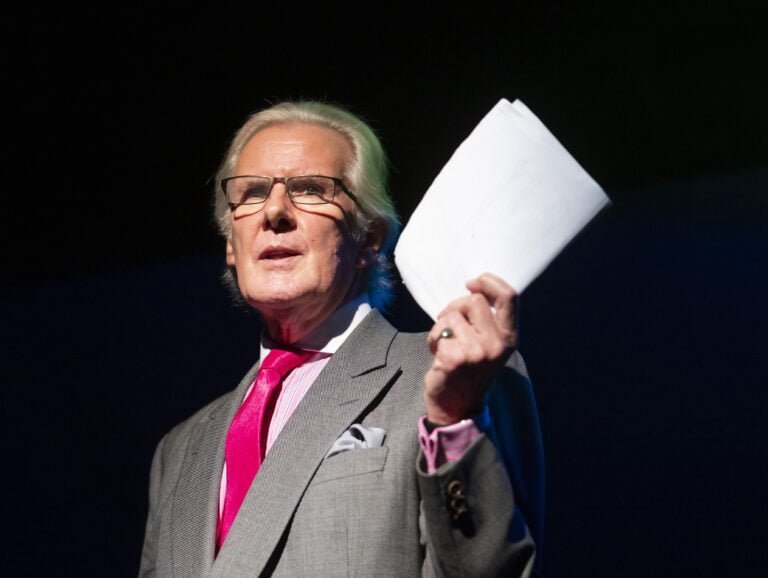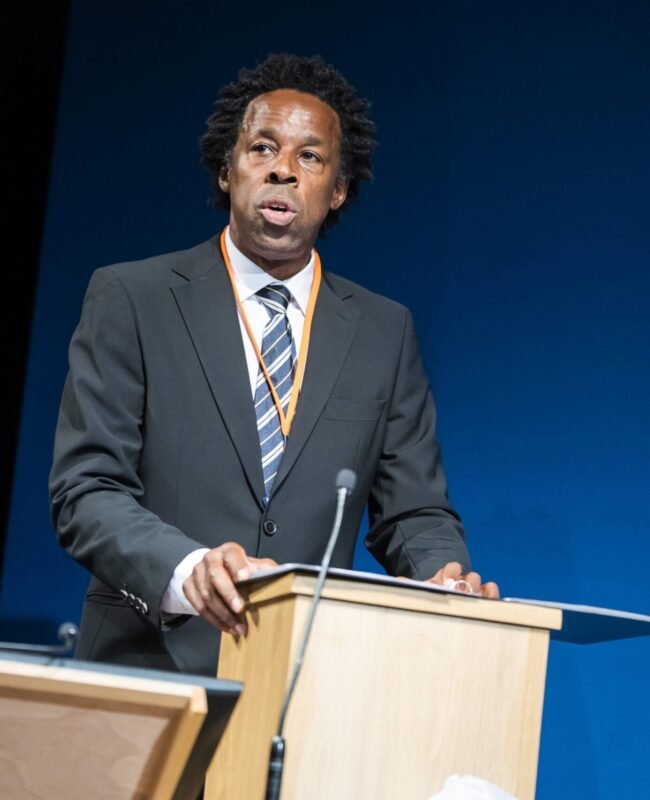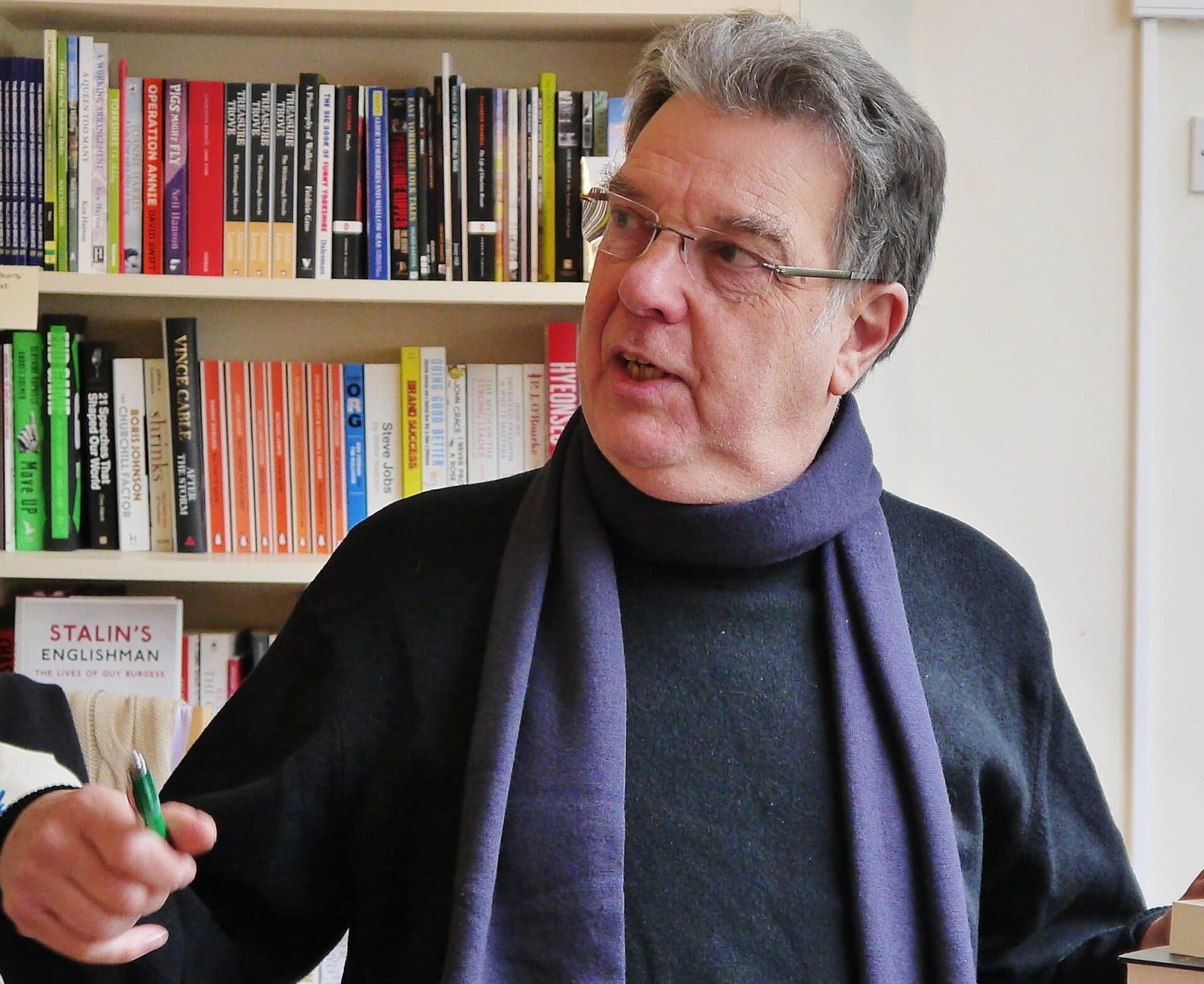The price of the lives of the poor
“The notion that Grenfell Tower was not compliant [with the building regulations] without anyone being at fault is unlikely.”
Richard Millett QC, Counsel to the Grenfell Tower inquiry.

Grenfell: Value Engineering – Scenes from the Grenfell Inquiry has no right to work as drama. It’s simply edited extracts from the enquiry into the Grenfell Tower fire. It disobeys the first rule of playwriting: it doesn’t show, it tells. The director keeps his actors static – the judge in the centre, the counsel for the enquiry standing at his desk, the witnesses in the witness box: none of those moments beloved of American courtroom dramas when the lawyer prowls around the courtroom and looms over the wretched witness.
Theatre is not supposed to work this way. Yet this is one of the most compelling pieces of theatre you will ever see.
That’s partly because the subject matter is appalling, and still very close. Grenfell Tower in west London burned down on 14th June 2017 and 72 people met a dreadful death in the smoke-filled furnace-like tower block. Within days it was public knowledge that the 24-storey building had been covered in a highly flammable cladding. If it hadn’t been, none of this would have happened.
It’s also because the technical and unemotional dialogue and delivery serve to throw into sharp relief the appalling truth that the play illuminates: the building was covered with a cheap cladding, known to be potentially lethal, in order to save a couple of hundred thousand pounds. That’s the value our society puts on the lives of people without money or influence – because if you have either of those things, you don’t live in Grenfell Tower.
A person who could walk out of the theatre and not feel unbearably angry would not be someone I could ever care about.

Author and director have wisely made a virtue of the humdrum setting and dialogue. The opening words are: “Good morning, everyone. We’re going to begin by hearing from expert witnesses.” When the talk gets technical or bureaucratic, Norton-Taylor leaves it as it was spoken. “I want to turn to paragraph 3.2.4 on page 8” says the counsel to the Inquiry. A few minutes later he says: “It’s right, isn’t it, that either you or someone else specified that a particular product was to be used, namely Celotex FR5000. Now, Celotex FR5000 was a PIR insulation product, wasn’t it?” The point being – and it’s all the more chilling because it’s expressed with legalistic dullness – that “PIR was a combustible insulation product.”
This method makes huge demands of a fine cast led by Richard Millett QC, Counsel to the Inquiry (Ron Cook), standing stock still, from time to time pressing his spectacles closer to his nose, never raising his voice. Cook is every inch the lawyer, visibly weighing every word. When someone in the audience coughs, he pauses politely until he has silence again. He is treating us as though we were in the public gallery of a courtroom.
Norton-Taylor, one of the best investigative journalists of his generation, has made this territory all his own, having turned into drama the inquiries into the Iraq War and into the murder of Stephen Lawrence, among others. This is his best yet.


Francis Beckett is an author, journalist, playwright and contemporary historian. He was the 2009 winner of the Ted Wragg Award for lifetime achievement in education journalism.
His latest two plays are A Modest Little Man (about Clement Attlee) and Vodka with Stalin.
Production Notes
Grenfell: Value Engineering – Scenes from the Inquiry
Edited by Richard Norton-Taylor
Directed by Nicolas Kent
Characters and Cast
Chairman Sir Martin Moore-Bick
(The Inquiry)
Thomas Wheatley
Counsel to the Inquiry Richard Millett QC
(The Inquiry)
Ron Cook
Kate Grange QC (The Inquiry)
Sally Giles
Barbara Lane (Expert Witness)
Polly Kemp
Luke Bisby (Expert Witness)
David Michaels
David Badillo
(Fire Brigade Firefighter)
Daniel Betts
Sarah Russell
(Fire Brigade Control Room Officer)
Claire Lams
Stephanie Barwise QC
(BSR Group Barrister)
Claire Lams
Bruce Sounes (Architect, Studio E)
Tim Lewis
Simon Lawrence
(Contract Manager, Rydon)
Phill Langhorne
Leslie Thomas QC
(BSR Group Barrister)
Derek Elroy
Ray Bailey (Director, Harley Curtain Wall)
David Robb
Ben Bailey
(Manager, Harley Curtain Wall)
Sam Buchanan
John Hoban
(RBK&C Senior Building Control Officer)
Howard Ward
David Gibson
(TMO, head of Capital Investment)
Daniel Betts
Claire Williams
(TMO, Project Manager)
Polly Kemp
Peter Maddison
(TMO, Director: Assets & Regeneration)
David Michaels
Michael Mansfield QC
(BSR Group Barrister)
David Robb
Creatives
Director: Nicholas Kent
Information
Running Time: Two hours 30 minutes with an interval
Booking to 13th November 2021
Then at Birmingham Rep 16th to 20th November
Theatre:
Tabernacle Theatre
34-35 Powis Square
Notting Hill
London W11 2AY
Tube : Ladbroke Grove or Westbourne Park
Website:
Reviewed by Francis Beckett
at the Tabernacle Theatre
on18th October 2021
